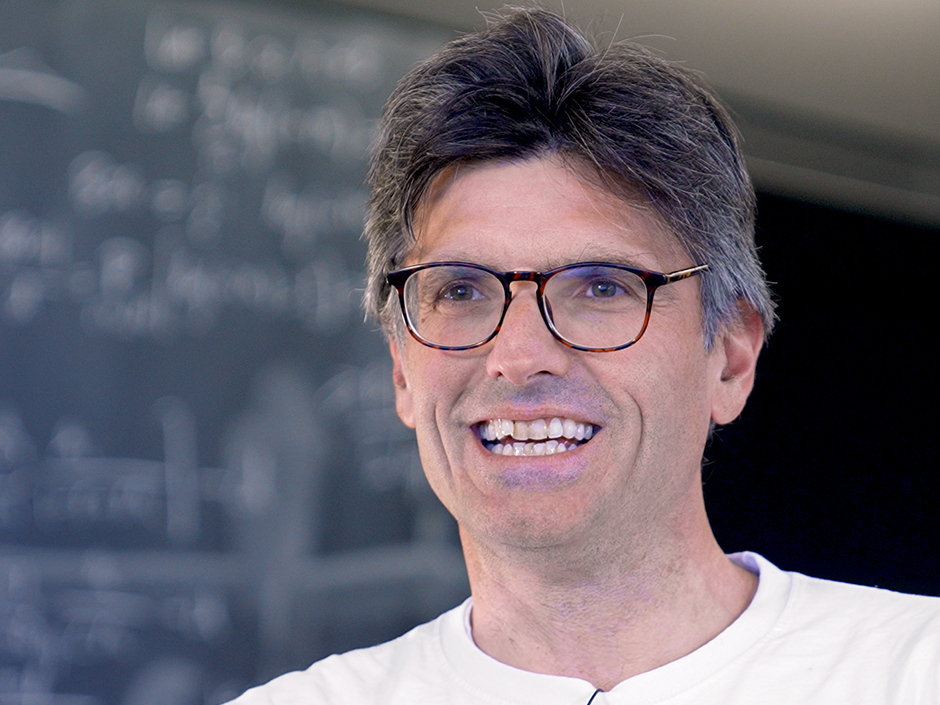Learning about phenotypes through genetic perturbations: A conversation with Ben Kuznets-Speck
- NITMB

- Nov 15, 2024
- 3 min read
The NSF-Simons National Institute for Theory and Mathematics in Biology is building community and expanding research possibilities with the Institute’s Research-In-Progress meetings. This meeting series convenes members of the NSF-Simons NITMB community to an informal venue for discussion of ongoing and planned projects. We are proud to invite a wide variety of scientists and mathematicians to share their work with our community. While Research-In-Progress meetings are only intended for members of the NITMB, we want to publicly spotlight some of the researchers who will be joining us to share insight into their career and work.

Ben Kuznets-Speck, postdoctoral research fellow, Northwestern University
Ben Kuznets-Speck is a postdoctoral research fellow in the Yogesh Goyal lab at Northwestern University. Kuznets-Speck leverages and develops theory, simulation, and machine learning techniques to work at the interface of statistical physics, biology, and evolution.
We spoke with Ben Kuznets-Speck to learn more about his work with genetic perturbations, and how collaboration with mathematicians can unlock new insight.
What is your current research area?
“Something that’s been central to my work, at least in the last couple of years, has been asking how we can learn about different phenotypes through genetic perturbations. When you make a mutation in a cell or you change the transcriptional machinery in a cell that’s going to perturb transcription, and then that in turn will perturb the phenotype. And so the main question that I’ve been asking is how did those perturbations really add up in order to switch phenotypes or to show exotic phenotypes.”
What disciplines does your research integrate?
“My research is primarily biophysical research, and so it integrates physics, as well as biology, machine learning, and genomics.”
Where do you find inspiration?
“I find my inspiration through academic papers and interacting with scientists.”
What aspects of your research could be interesting to mathematicians or applied to biology?
“The questions that I’ve been working on are fundamentally biological. They have to do with figuring out how to poke and prod a cell in order for it to do what you want it to do. Or how do you infer the state of a cell by measuring its response to perturbations? And that would be interesting to the mathematical biology community overall because it’s a major problem in biology and it hasn’t really been approached from a mathematical point of view yet.”
What about the NITMB do you find exciting?
“I find it very exciting that there’s an institute that aims to bring theorists and biologists closer together and to work on problems where disparate viewpoints might be able to come together to view a problem in a way that you wouldn’t be able to with a single modality at a time.”
What career achievement are you most proud of?
“I’m most proud of completing my PhD. I’m also proud of being a Hertz Fellowship finalist. I’m proud to be able to work with a multidisciplinary group of people.”
Outside of your research, what other interests do you have?
“I’m interested in staying active, so I like to be outside a lot. I like to go to the beach, run, swim, and play volleyball. Other than that, I mostly hang out with my friends and my boyfriend.”
What are you hoping to work on in the future?
“I’m hoping to work on similar questions in the future. I’ve always been interested in the response of systems. So if you have a system that’s behaving in its own unique way, and you poke it in a certain way, how will it respond? I’ve spent a lot of time doing that for molecular level biophysical systems in my PhD and now for more transcriptome-wide or genome-wide systems in my postdoc work. I’m very interested in collaborating with other people that are interested in machine learning for example, and people who are interested in modeling in the sense of merging biophysical and population genetics models because there’s a lot of interesting phenomena that happen on a molecular level that you can get from biophysics models. seeing how that propagates and proliferates throughout a population that is subjected to mutational and selective forces. Merging those two types of models, that’s an area that hasn’t been touched as much.”
The NITMB looks forward to welcoming Ben Kuznets-Speck on Friday, November 15th as part of the Research-In-Progress meeting series. More information on Ben Kuznets-Speck’s work is available on Ben Kuznets-Speck’s website and on Google Scholar.


